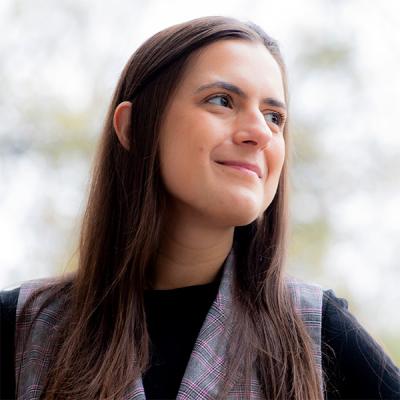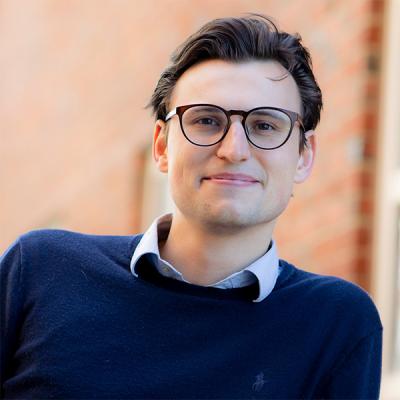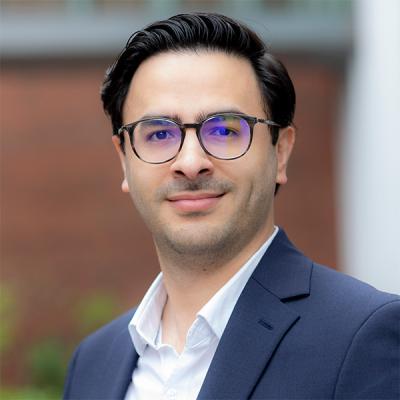Highlights of My Tuck MBA Experience
ON DECIDING TO PURSUE AN MBA
When I decided to pursue an MBA two words encapsulated my goals: environment and community. Both are critical issues globally and locally—and from youthful growing pains to culture shock on a rural German dairy farm, and from discussing poor coffee harvests with Peruvian farmers to breathing wildfire smoke in the Rockies—I have experienced firsthand the importance of each.
At McKinsey, I balanced the two by building energy transition expertise and leading local connectivity, but I found myself hitting a wall. The leaders I admire possess a quiet capability, confidently managing ethical work done with integrity, while also finding time to live lives rich in wild spaces and self-reflection. I believed the content expertise and personal growth provided by an MBA would enable me to become that type of leader.
ON CHOOSING TUCK
Any top MBA would build the managerial skills I require, but only Tuck—with its position in the Upper Valley near the White Mountains, its emphasis on deep class connection, and its energy offerings from the Revers Center—provided the perfect combination for my goals. For some, Tuck’s rural location is a negative, but for me, the opportunity to build deeper connections with both my classmates and the New England landscape was too good to pass up. Others may chafe at small classes that force participation, however, I saw it as a chance to engage with courses and professors at the level only Tuck allows.
HIGHLIGHTS OF MY TUCK EXPERIENCE
Academically, the First-Year Project (FYP) was probably my most memorable experience at Tuck. I coordinated a team of five students to assist a cleantech startup in deciding which geographical market, and application of its technology, to expand into next. By leveraging Tuck resources, like the Feldberg Library’s collection of databases, the startup employees were able to apply more rigorous decision criteria than would have been possible without our help.
Socially, I’ve loved cocaptaining the Tuck Soccer Club. It’s been incredible to foster an inclusive and fun environment to play a sport that holds a special place in my heart. Finally, Tuck’s Small Group Dinners have been a highlight—I’ve hosted over five! SGDs are a perfect encapsulation of Tuck’s emphasis on community, and I found some of my favorite people at Tuck through those events.
ON LEVERAGING TUCK RESOURCES
At Tuck, I relied most on the Revers Center to deliver the experiential learning I needed to deepen my understanding of global energy systems. Not only did it provide professional and academic opportunities, but the network that it opened up to me has given me insight into where I could potentially go with my career post-McKinsey.
ON TUCK’S INTIMATE COMMUNITY
At Tuck, no one comes in with an existing network; everybody is in the same boat—trying to balance making friends with recruiting, classes, sports, getting outside, and every other activity you could imagine. Combined with small class sizes and limited ability to “escape” the Tuck bubble, Tuckies have no choice but to build a special community, unique to each class. In contrast to city schools, where many (or most) people have existing networks—the depth of relationships you build simply can’t be the same. Tuckies tend to spend their weekends in the Upper Valley, deepening bonds with each other rather than regularly escaping to far-flung destinations. I feel connected to almost everybody in my class, not just the ten to fifteen people who might go on the same trips as me.
GENERAL ADVICE FOR PROSPECTIVE MBA STUDENTS
An MBA is a generalist’s degree, not a specialist’s. Tuck’s courses have helped me round out my business skill set, but I found experiential learning to be far superior to classroom learning for deepening my understanding of my interest in energy. To that end, it doesn’t matter if the curriculum has ten courses in a specific topic of interest, or zero; all that matters is whether the program will support you in learning outside of the classroom. The personalized attention that Tuck’s small size affords has enabled me to go far deeper into the energy transition than adding a few more energy-based courses would have—not that it slouches on that front, either.
ON LIFE IN THE UPPER VALLEY
Every morning from my window, I see Mount Ascutney presiding over the Connecticut River and the Vermont countryside. I walk around campus and feel the seasons change. I finish classes and walk directly to soccer fields, or drive an hour to Killington to fly down the snowy (icy?) mountainside. Some might say Tuck is “in the middle of nowhere”, but to me, it is far more centrally located than any city. At Tuck, I was able to live the kind of lifestyle that concrete-bound city students could only visit on weekends. Though I am excited to start the next chapter of my life in Boston, I am already scheming for ways to return to the Upper Valley so I can relive the beauty and ease of living that I have enjoyed for the past two years.



